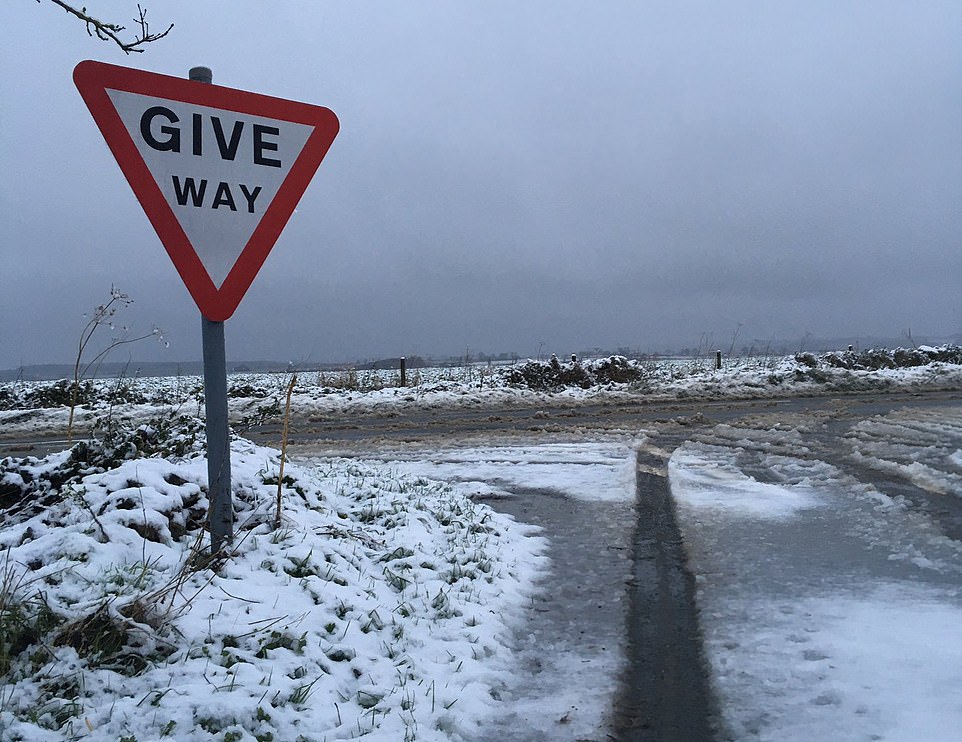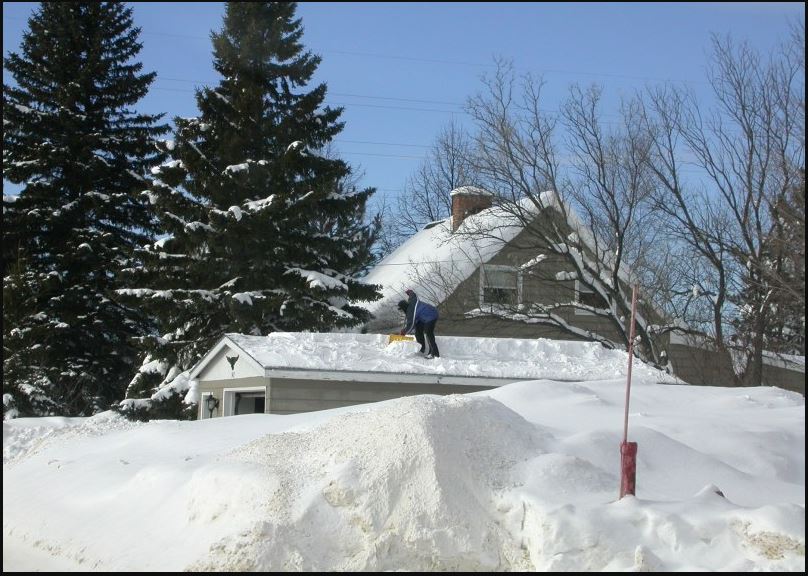Apparently, winter has come early in parts of Britishland:
Parts of Britain woke up to snow today as forecasters issued several ice alerts after warnings that up to half a months worth of rain will fall on already flood-hit areas.
East Gloucestershire, parts of Wiltshire and South Wales were pictured blanketed in snow this morning in the first dusting of the winter.
The Met Office issued several alerts for snow and ice across the South East and South West of England, South Wales and the West Midlands that were in force until 10am.
And the usual pics of the snow “blanket”:


Meanwhile, in Michigan’s Upper Peninsula:

All that said, however, the flooding in northern Britishland has been heavy:

…and those are fields, not a river bursting its banks.
I blame Labour. Or Trump. [/Schiff]

“Snowfalls are now just a thing of the past.”
LOLGF.
I grew up in Michigan’s Upper Peninsula and went to college probably not too far from where that picture was taken (390+ inches of snow for my last winter there). Living in Colorado now, I can certainly appreciate how much it snows in the mountains but leaves the metro area largely alone.
Shoveling a roof is more fun than shoveling a driveway though.
Especially as shoveling a roof carries additional risks of broken limbs etc.
I thought you were supposed to leave the roof unshovelled as the snow acted as insulation?
I once taught fluid mechanics at a VERY southern engineering school. The text discussed snow loading, a topic absolutely unfamiliar to nearly all of my students, and I hadn’t considered it for over thirty years because I’d lived in the area since grad school.
I decided to get the true and lively word on the topic by calling a random chemical engineering prof at Michigan Tech in Houghton (Average snowfall is just a tad under 20 feet.).
The prof said they had had a spate of roof collapses in the energy crisis years because people added insulation to their attics. That added insulation added to the snow load by decreasing snow lost because of heat flow to the underside of the roofs. After the first couple of roof failures the home owners recalibrated their snow removal efforts in light of the new reality.
I asked how often he had to sweep snow off his roof and he laughed. He couldn’t sweep it off because the snow compacted and recrystallized into ice that had to be shoveled off.
But he’d never had a class cancelled by an approaching hurricane.
I remember a deer season in the UP when we were still young and foolish enough to hunt out of a surplus army tent. My buddies went into town and I spent the evening at camp to pack up my gear since I was leaving for home the next morning. I heard what I thought was a very loud explosion just outside the tent so I went out to investigate with a big Maglite and .357 revolver. Didn’t see anything. Same noise about ten minutes later and then a series of bangs went on for quite some time. When my buddies got back to the camp they laughed and told me that it was the first really hard freeze of the season – minus 5 to 10 – and I was hearing the sap in the trees freeze and explode the branches. So I had a couple of fingers of bourbon, went to bed and got out of there the next morning before any of my body parts froze and fell off.
In 2003, snow load brought down the roof of Mt Clare Roundhouse, an iconic 1884 building in Baltimore housing a huge collection of some of the rarest railroading vehicles in the world, some from as early as the 1830’s.
Before: https://www.railpictures.net/images/d2/0/8/7/1087.1456173599.jpg
After: http://sbiii.com/boxpix/6672268.jpg